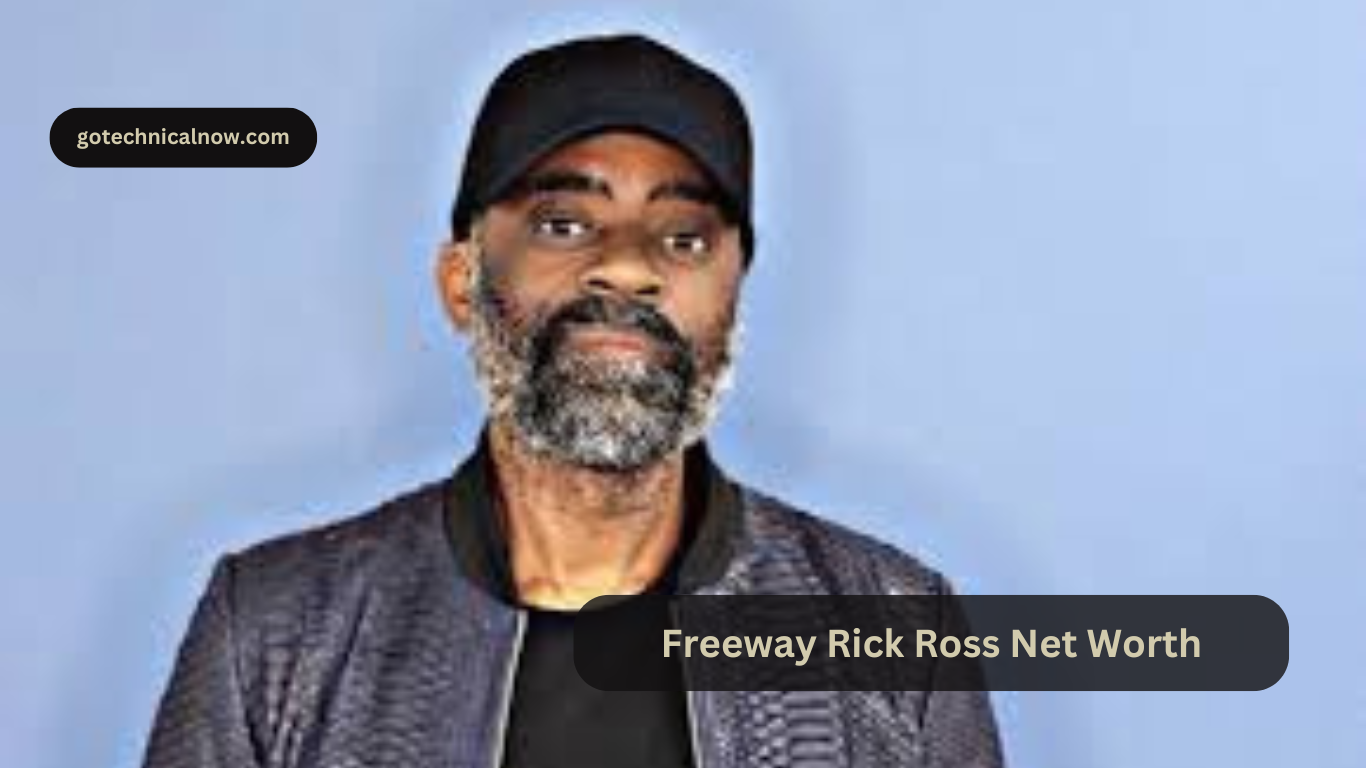“Freeway” Rick Ross, an American convicted drug trafficker, has a net worth of $1 million as of 2024. Born on January 26, 1960, in Troup, Texas, Ross is 64 years old today. Known for running a massive drug empire in Los Angeles during the early 1980s, his criminal activities earned him a notorious reputation and a peak net worth that he claims exceeded $600 million. Despite his criminal past, Ross has transformed his life and now shares his experiences through public speaking and media appearances.
Early Life and Challenges
Ricky Donnell Ross was born to Sonny Ross and Annie Mae Mauldin. At the age of three, he moved to Los Angeles with his mother. His father, a former Army cook and pig farmer, stayed behind in Texas. Ross’s childhood in Los Angeles was marked by poverty and the struggle to support his family. Living in a neighborhood underneath the Interstate 110, known as the “Harbor Freeway,” earned him the nickname “Freeway.”
Growing up, Ross took on various odd jobs and developed a passion for tennis. Despite not being a natural athlete, he played daily and earned a spot on his high school team at Susan Miller Dorsey High School. Tennis provided an escape from his difficult surroundings and offered him opportunities, such as being scouted by Cal State. However, his illiteracy prevented him from securing a scholarship, and his dreams of a tennis career ended abruptly.
Descent into Crime
With his tennis ambitions shattered, Ross turned to crime. His entry into the criminal world began with part-ownership of an auto chop shop, where he was first introduced to cocaine. His initial foray into drug dealing was facilitated by Henry Corrales, who supplied him with Nicaraguan cocaine. Ross quickly expanded his operations, and by 1984, he had connected with Oscar Danilo Blandon Reyes, another Nicaraguan drug trafficker.
Ross’s drug empire grew rapidly, and he soon started dealing with Colombian drug cartels. He invested his profits in various legitimate businesses, including real estate and a tennis training program for young teens. However, his involvement in the drug trade also meant constant danger, leading him to wear a bulletproof vest at all times.
Law Enforcement Pursuit
By 1985, Ross had attracted the attention of law enforcement. The Los Angeles Sheriff’s Department established the “Freeway Ricky Task Force,” dedicated to shutting down his operations. Despite widespread corruption within the police force, Ross managed to evade capture for several years. However, his luck ran out in the late 1980s when he was charged with drug trafficking after the seizure of nine kilos of cocaine linked to his organization.
Initially, Ross managed to shorten his sentence by testifying against corrupt police officers. However, his former business partner, Blandon, turned on him, providing additional information that led to Ross being sentenced to life in prison. Determined to regain his freedom, Ross spent countless hours in the prison library, overcoming his illiteracy and reading over 300 books. His self-education focused on self-help, entrepreneurship, and the legal system.
Redemption and Release
Ross’s greatest achievement during his time in prison was learning about the legal system well enough to successfully appeal his sentence. He managed to reduce his life sentence to 20 years, and in 2009, he was released from prison. His story of redemption is one of perseverance and self-improvement, highlighting his ability to turn his life around despite the odds.
Autobiography and Media Appearances
In 2013, Ross began working on his autobiography, “Freeway Rick Ross: The Untold Autobiography,” which was released in 2014 to strong reviews. The book provided an in-depth look at his life and the inner workings of his drug empire. Ross has also appeared in various media, including the 2015 documentary “Freeway: Crack in the System,” which was nominated for an Emmy. He is a frequent guest on “The Joe Rogan Experience” podcast and has made numerous public speaking appearances.
Legal Battle with Rapper Rick Ross
In 2010, “Freeway” Rick Ross sued rapper William Leonard Roberts II, known as Rick Ross, for copyright infringement. The rapper had adopted his stage name as an homage to the former drug trafficker. “Freeway” Rick Ross claimed that he was the real Rick Ross and sought $10 million in compensation. Although his case was dismissed, he appealed multiple times, and the matter was eventually taken to the United States Court of Appeals for the Ninth Circuit. The court ruled in favor of the rapper, citing First Amendment rights.
Conclusion
“Freeway” Rick Ross’s life is a testament to the complexities of the American criminal justice system and the power of personal redemption. From running a multi-million dollar drug empire to educating himself in prison and transforming his life, Ross’s journey is both cautionary and inspirational. Today, he continues to share his story, providing valuable lessons on resilience and the possibility of change.










